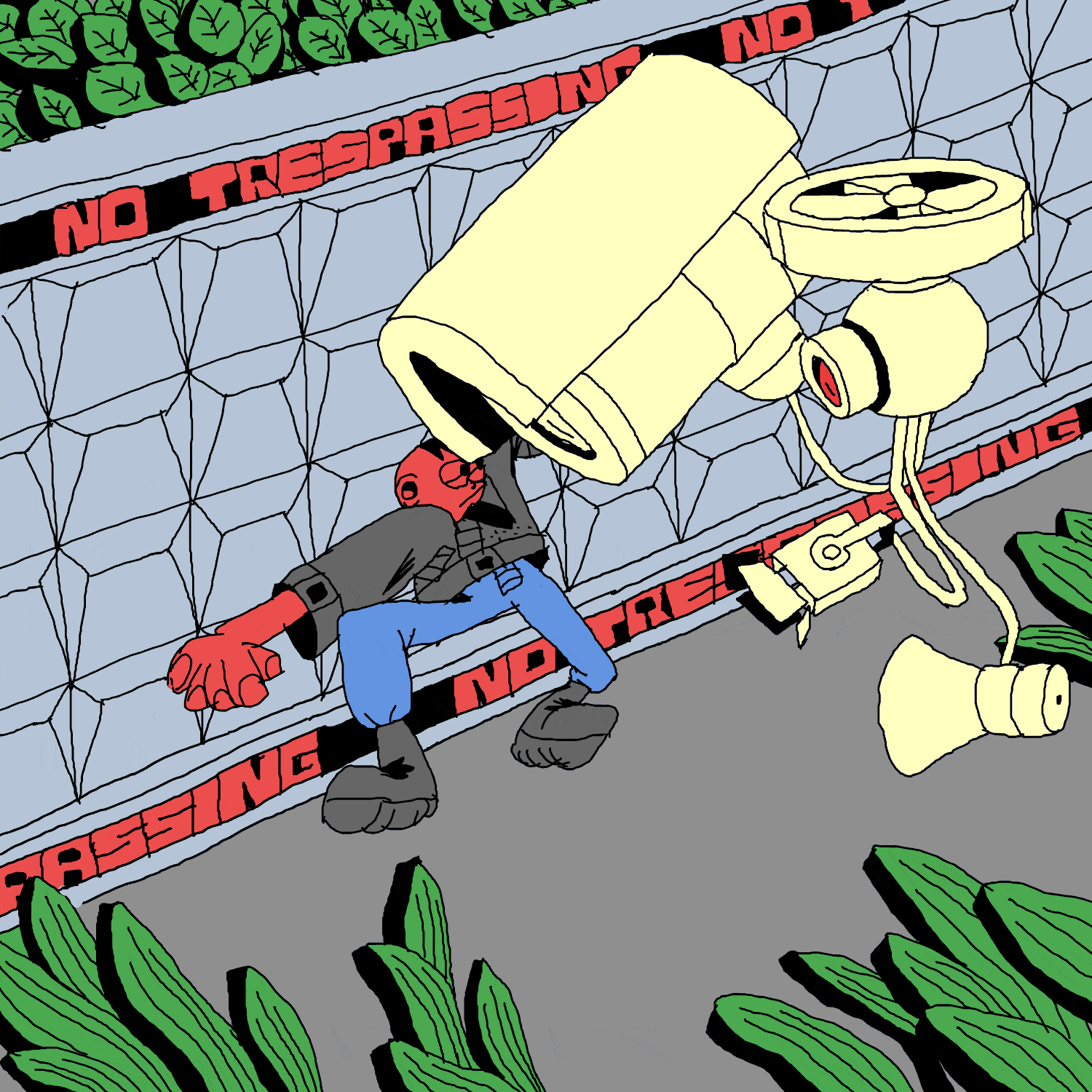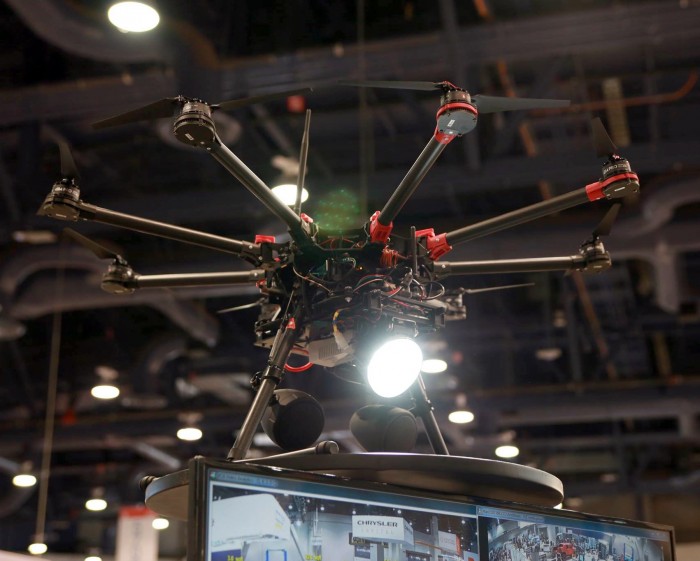Drone Security Guard Scolds Intruders from the Sky


The drone turned slowly with a loud buzzing sound, red and blue lights flashing, and hit me right in the eyes with a spotlight. “Security has been notified,” boomed a smooth voice from the aircraft’s twin loudspeakers. “This area is secured.”
Startup Aptonomy thinks this experience can keep intruders out of factories, warehouses, and other facilities more cheaply than human guards can and more effectively than cameras and alarms.
I received the drone security guard treatment in a demonstration at the company’s testing area on Treasure Island, an old naval base in San Francisco Bay. Cofounder Mihail Pivtoraiko says his drones will be ready to go on patrol next year. One construction company is already collaborating on test flights, and some oil refineries are also interested.
Each drone is just over a meter across and is built by adding custom electronics and sensors to an eight-propeller craft marketed for aerial photography. As well as a control system, Aptonomy adds blue and red lights, and a white spotlight and two loudspeakers for confronting intruders. The drone captures video using conventional and night vision cameras. A thermal camera, which makes it easy to spot people from a long distance, will be added soon.
When on duty, an Aptonomy drone will be programmed to patrol a set area automatically, and use its onboard cameras to spot and approach any person entering who shouldn’t be. The drone would flash its warning lights, light the person with its spotlight and deliver a canned warning to retreat. A security guard in a control center would be notified, and the guard could take control of the drone and speak through it.
Pivtoraiko says the drone isn’t intended to be scary, although it could certainly be intimidating on a dark night. The company is not interested in arming its drones with anything more than cameras and speakers, he says. If a person ignored the drone it would keep filming while a person in the remote control center called the police.
Ryan Calo, an assistant professor at the University of Washington who specializes in law and robotics, says that although the idea of drones confronting humans is unusual, he doesn’t foresee significant objections to the idea. “The beauty of this is that it would be in an environment where people shouldn’t be going,” he says.
One challenge for Aptonomy is that current U.S. airspace rules, recently updated to widen commercial drone use, don’t allow uncrewed aircraft to fly at night, or operate autonomously outside the sight of their pilot. Needing to have a human supervise a security drone would limit the cost savings.
The FAA has recently given some companies special permission to fly drones at night or beyond direct view of their controller (see “Some U.S. Drones Are Getting Longer Leashes”). Pivtoraiko believes his company has a good chance of getting similar waivers because his drones would operate on well-secured private land.
Keep Reading
Most Popular
Large language models can do jaw-dropping things. But nobody knows exactly why.
And that's a problem. Figuring it out is one of the biggest scientific puzzles of our time and a crucial step towards controlling more powerful future models.
How scientists traced a mysterious covid case back to six toilets
When wastewater surveillance turns into a hunt for a single infected individual, the ethics get tricky.
The problem with plug-in hybrids? Their drivers.
Plug-in hybrids are often sold as a transition to EVs, but new data from Europe shows we’re still underestimating the emissions they produce.
Google DeepMind’s new generative model makes Super Mario–like games from scratch
Genie learns how to control games by watching hours and hours of video. It could help train next-gen robots too.
Stay connected
Get the latest updates from
MIT Technology Review
Discover special offers, top stories, upcoming events, and more.